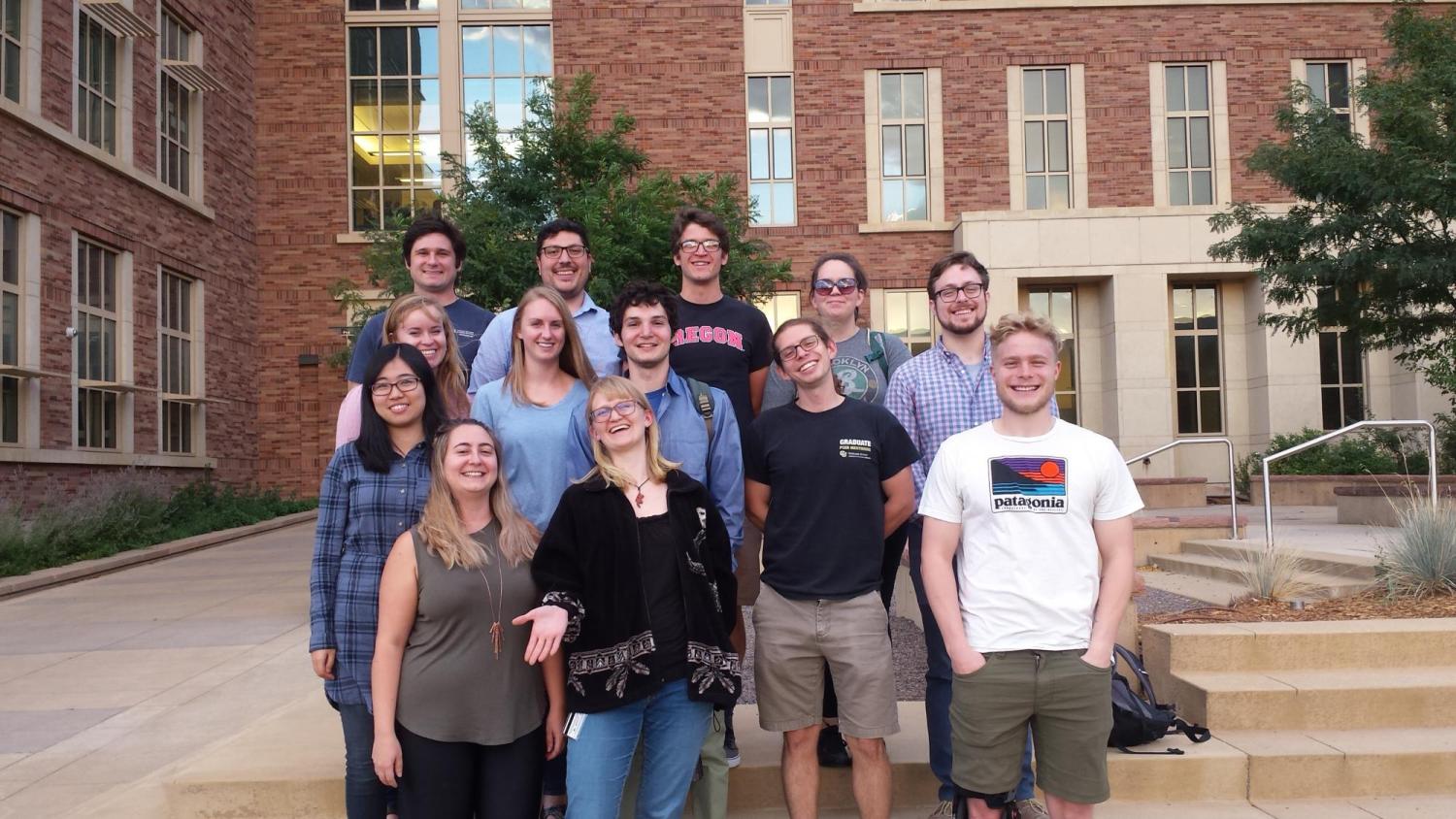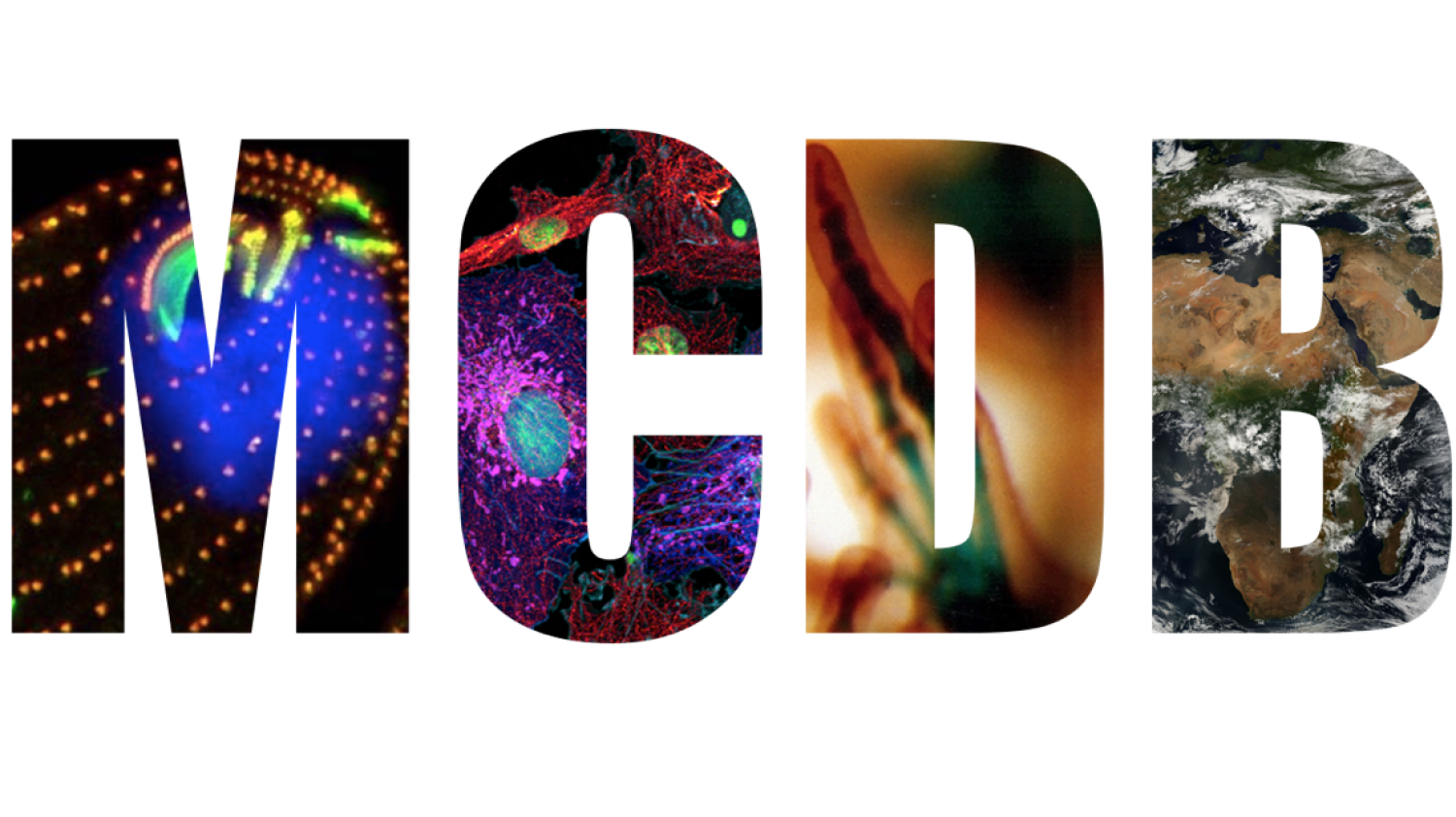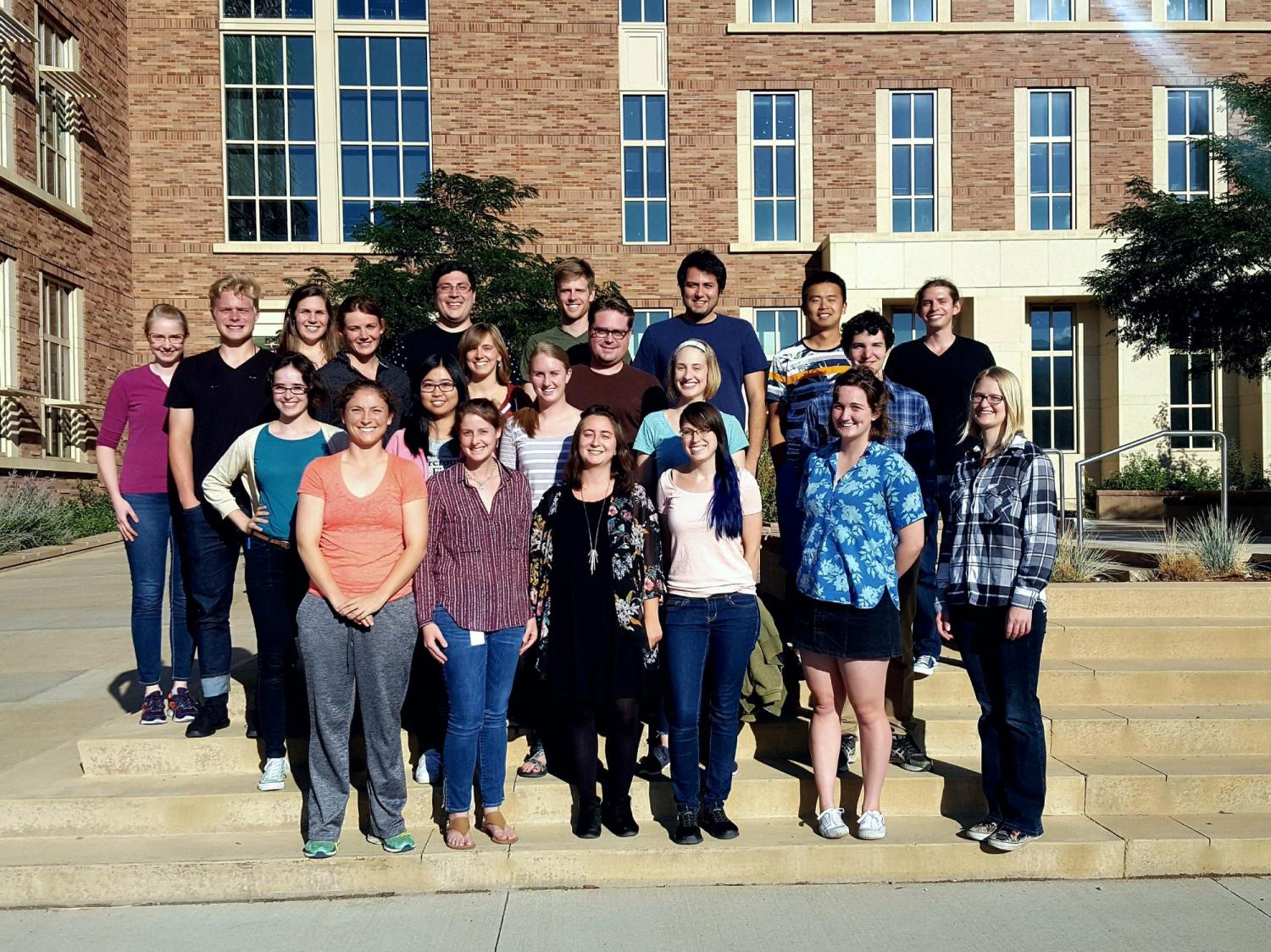Signaling and Cellular Regulation Home
Fall 2022 First post-pandemic trainee photo

Fall 2018 Some trainees pose for a picture after lively research discussion.
Fall 2017 SCR trainees being forced to squint into the sun before a session of student lightning talks.
The Signaling and Cellular Regulation Graduate Training Program is an interdepartmental effort between faculty in the departments of Biochemistry and of Molecular, Cellular, and Developmental Biology with the goal of promoting interactions between laboratories, enriching perspectives and expertise, and providing a wide pool of mentorship for graduate students. The SCR training program prepares graduate students to conduct innovative, high impact, and multi-disciplinary research in signal transduction. Members of the program engage in research aimed at obtaining a mechanistic understanding of signal transduction and cellular regulation, which includes cellular signaling pathways and downstream targets, cell differentiation and organismal development, responses to cell stress and nutritional requirements, and programmed cell death. Specialized training in signal transduction and cellular regulation is provided by formal graduate coursework and original scientific research in this area. The program provides multi-disciplinary training using combined approaches of biochemistry, biophysics, chemistry, pharmacology, cell biology, developmental biology, genetics, and molecular biology. New areas of training include computational biology and bioinformatics, chemical biology, and advanced light microscopy.
The SCR program also gives trainees ample opportunity to develop the soft skills required for a successful scientific career. Students organize and present at journal clubs, seminars, supergroup meetings, and an annual symposium. Students also receive coaching and encouragement in grant writing and support to attend scientific meetings.
The program was initiated in 1991. In 2000, the program was awarded a T32 training grant from the National Institutes of Health, which has continually renewed its support through June 2026. This grant, along with university cost sharing, allows the program to support fifteen new trainees each year.
Follow us on Twitter: @SCRsupergroup
Learn more about the participating departments:
 |
|



